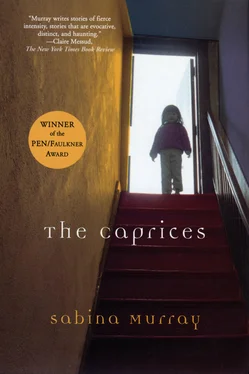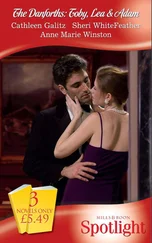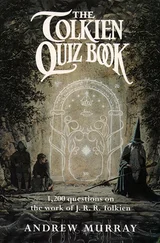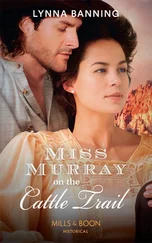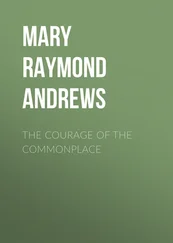“No,” said Jim quietly. “I didn’t forget.” There was an awkward silence.
“Tell me again,” said the cousin, “how you two know each other.”
Jim was sure the cousin knew all the details, but appreciated hearing it all again.
“On Bataan, Jim found me digging my brother’s grave.”
Jim was surprised at how plainly Totoy related the tale. There was no embellishment, yet it had already become a myth — the children sitting on the great couch, the cart ride, the water buffalo — as if at that moment all those things, and Jim and Totoy too, should have been flung into the heavens and recorded in the stars. Totoy’s voice sang on and on, unwavering, over the staccato of the Chinese diners, over the slam of plates and the grinding traffic just outside.
“So Jim here wakes up,” says Totoy, “and he wants to know, so he asks Clara, ‘Who is Golly Bear?’” And the men broke down laughing. “Say it, Jim, because my accent is too thick.”
“Gulliver.”
“Golly Bear,” says Totoy.
“Guliber,” says his cousin.
Totoy nods in acknowledgment of his cousin’s superior pronunciation. Then all the men laugh, which sets off the coughing, which brings out the handkerchief — white flecked with brown spots. And then there were new bright red spots. New blood. How could a man that old and sick cough such a vibrant liquid? How could his juices still be so sweet?
In the end Jim didn’t invite Totoy back to the island. He gave him a check for a thousand dollars and told him to buy a plane ticket home. Totoy had no trouble taking the money.
He said, “I know I saved you for something.”
Jim pulled the cousin aside. “Make sure he gets home. I told his sister I’d get him home.”
“He either walks on the plane or he goes as baggage, but he goes in one piece,” said the cousin.
Totoy shook Jim’s hand firmly. “They are lying. I am still strong,” he said, squeezing hard, the effort clear on his face.
One month passed and Jim heard nothing from Totoy or Clara or the cousin. He called the Philippines at 7 P.M. After three polite grandchildren in ascending age and fluency in English, he got Clara. There were roosters crowing in the background and she was barking out orders for breakfast. She didn’t know who it was.
“Clara, it’s Jim.”
“Who?”
“Jim from the States. Remember? Gulliver?”
“Ah. Sorry. I am old and crazy.” She yelled something and the house fell quiet. Even the roosters obeyed. “Totoy is dead,” she said.
Totoy had died in San Francisco, destitute, surrounded by friends and relatives. Clara knew about the money for the plane ticket, but it had all been blown on gambling. For two straight weeks Totoy and his cousin had hopped on board the bus tour to the Indian reservation, drinking cognac, smoking Marlboros, and generally having a good time. Clara had a letter from the cousin. Jim was mentioned in it. The cousin had written Clara that Totoy didn’t feel bad about the gambling. God wouldn’t want him anyway and what Jim really owed him was a life. So for two weeks he had lived. Don’t feel bad for Totoy. His last memory was rolling the dice and winning.
“So what do you think of that?” said Clara.
“I can’t blame him,” said Jim. “I wish I’d known. I probably could have come up with another grand to get the guy home.”
“He is no good, that Totoy, even when he’s dead. There were pieces of bones in the ashes. In the airport, they saw the bones with the X-ray. They said the bones were seeds. Yes. Seeds to grow marijuana in dirt. I had to give the man at customs a thousand pesos.”
The storm was picking up. A powdery snow blew in sideways. One by one the leaves had peeled away in the wind and now, at the base of the steps where the icicle had dripped, a flat patch of sky was frozen in the puddle. The temperature had dropped. The sun no longer broke through the veil of clouds. The once brilliant shards of light were now dulled with the promise of winter’s occupation. The radio blared the news of a Patriot touchdown, but Jim had lost track of the game and didn’t know if there was hope. A car hissed along the pavement and for one brief moment Jim saw himself reflected in the window, seated still as Lincoln and slowly turning white in the dying light. The wind shifted, blowing snow onto Jim’s shoes and pants. The wind chime hanging by the door sounded a dolorous note.
Peggy had bought that wind chime in Rhodes ten years ago. He remembered entering the city in the late afternoon, siesta time. The heat beat down on the cobbled walks, glinting off the ramparts and washing every part of the medieval city in white light. All the wind chimes sounded together from the open storefronts and although Jim was ready to resist such calculated magic, Peggy had wanted a wind chime and bought one.
Peggy wanted to see Rhodes because she wanted to see all Seven Wonders of the World. The Colossus of Rhodes was one of these. The summer before, they had seen the Pyramids. But there was no colossus in Rhodes. When Peggy told him the statue was gone, had been gone since the third century B.C., Jim wanted to know why Peggy had made him leave Santorini. They’d traveled almost to Turkey on a ferry that reminded him of the death barge he’d taken to Japan in 1944, all to see where a statue had once been. Peggy found his reaction funny, but she found herself funny too.
“If you listened, you’d know the statue was gone,” Peggy said. She stood at the port with the fierce Greek sun beating down on her. It didn’t matter that the Colossus of Rhodes had fallen down in an earthquake in 226 B.C., been left in pieces for nine hundred years, then taken to Syria as scrap metal. She could still feel it. “There’s something missing,” she said. And that was enough for her.
The light was fading and the house across the street was now different shades of gray. Beyond the planks of the fence, the goldenrod was capped with snow. The beach plums and wild rose were lost somewhere in the snowy bank, and the tide had crept inward, floating a dinghy that now tugged at the rope. Jim could not move, only watch. Through the low hiss of snow skidding along the road, he heard a scraping noise as if someone were dragging a piece of metal — a lead pipe, maybe — up the street. He listened to the noise come closer. There was something frightening about it. Then, rounding the southern end of the street, he saw a man that he recognized. It was Matsuo, still impaled, carrying the drill up the street.
Jim watched Matsuo’s progress as he drew nearer to the house. He remained calm. The drill tip scraped behind Matsuo, who struggled with each step. The drill seemed to throw his balance and the blunt end, still protruding from his chest, made the angle of his head unnatural, tilted to the left. A bloodstain bloomed general over Matsuo’s tunic, like an awful flower. The drill was very heavy.
Matsuo raised his pale face to the porch and Jim noticed that Matsuo — unlike him — was still young. Jim held his breath and waited, but the apparition remained. The two men watched each other. After sixty years of searching, Matsuo had found him. Finally, Matsuo pursed his lips and inhaled with great effort.
“Senso,” said Matsuo.
Senso meant war.
“Owari,” said Matsuo.
Owari meant finished.
Jim held Matsuo in his gaze, unable to look away. He asked, “Why are you here?”
Matsuo struggled to find words. He shook his head slowly. The wind sang through the scrubby pine. Still the radio sputtered on the kitchen table. The postgame coverage drifted out through the living room past the sideboard and the brown picture of Peggy’s great-grandparents on the beach — their shaded heads and naked feet. There on the wall by the mirror were Jim’s framed dog tags. By the door, on the loaded coat hooks, Peggy’s barn jacket and slicker still hung. The wallpaper around the east window was peeling from the damp and needed attention. The gutter had filled up with leaves and sprouted icicles. To the north, the garage door of the neighboring house had blown loose and its even banging reminded Jim of his mother’s skilled knifework as she chopped apples. Snow was collecting on the brim of Matsuo’s hat.
Читать дальше
